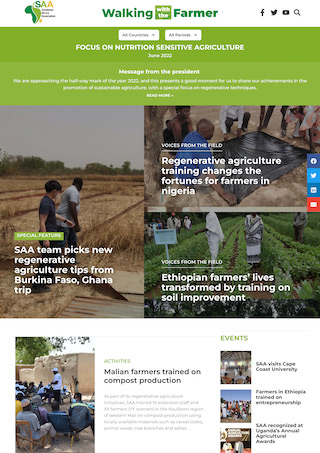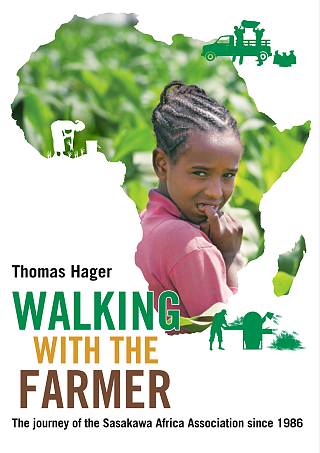WOMEN’S AGRO-PROCESSING ENTERPRISES: A source of income for rural women in Nigeria

Since 2012, the Postharvest Handling and Agro-processing programme (PHAP) of Sasakawa Global 2000 (SG 2000) in Nigeria has been promoting improved agro-processing technologies and techniques in rice, maize and soya production, with the aim of empowering women – particularly those in rural areas.
Through SG 2000 interventions, several agri-business enterprises
were established, and women’s agro-processing cooperatives currently operate in Adamawa, Kano, Gombe, and Jigawa States. Several technology packages have been delivered through PHAP in these areas. Their aim is to improve agro-processing techniques and produce more marketable, value-added food products by facilitating access to more efficient technologies that save time, improve the quality of produce, and increase processors’income.
SG 2000 works closely with government partners at different levels, including in agriculture and women’s affairs departments,to identify women’s groups and cooperatives operating in a variety of areas and provide bespoke interventions. In each project area,needs, priorities, and the capacity gaps of these collectives were assessed in order to select and prioritise commercially viable enterprises. This approach facilitates ownership and guarantees continuous follow-up and assistance from government, at least until they are able to effectively manage their own business.
The Bunkure women’s rice processing group was trained on quality processing, agri-business development and group management. As
a result of this training they were able to improve their processing activities. Over a two-year period, women processors of rice saw an increase in their income, from $939.3 in the dry season and $1089.3 in the rainy season to about $2346.4 and $1996.4 respectively.
A survey found that 49 per cent of trained cooperative members reported gaining new skills in agro-processing and value addition, while 51 per cent had learned new business competencies such as business selection, saving, and customer handling, amongst others. Reported changes for cooperative members (women) of the agroprocessing group also included better family nutrition (51 per cent), a better social life (49 per cent) and increased job opportunities(40.5 per cent).
SAA believes women’s agro-processing cooperatives are better ways of empowering low-income rural women and changing misconceptions about gender in society. Through establishing platforms for efficient agri-business enterprises and collaboration between different groups, these cooperatives can make a positive impact on the incomes and livelihoods of women and their families. Such collaborative efforts between different development partners, including governments, are required to give appropriate attention to women’s cooperatives in order to support them with the necessary financial and technical guidance to foster their successful development.
SAA Publications

E-newsletter
"Walking with the Farmer"
SAA publishes a bimonthly e-newsletter reporting on SAA activities.

SAA history book
"Walking with the Farmer: The journey of the Sasakawa Africa Assoication since 1986"
This book chronicles the history of SAA from its inception to the present.

Annual Report
Annual Report FY2023
Annual Report FY2023 is available here.




